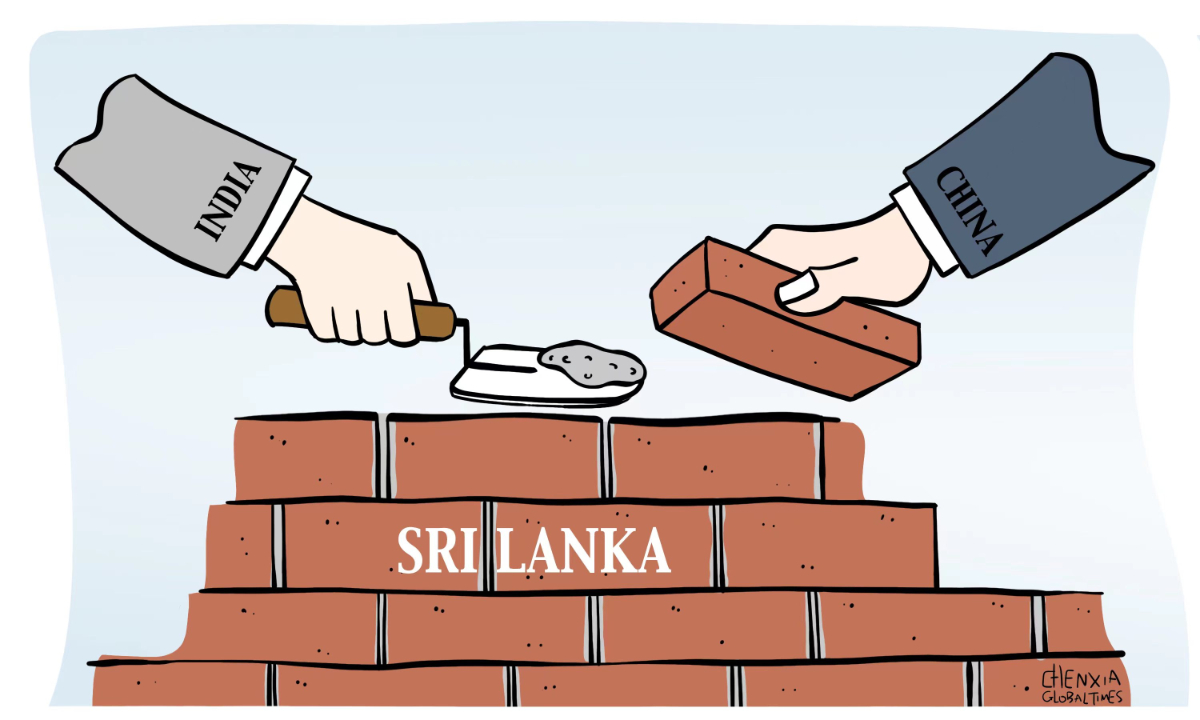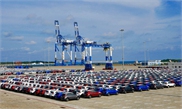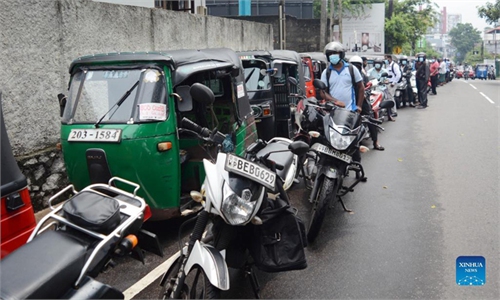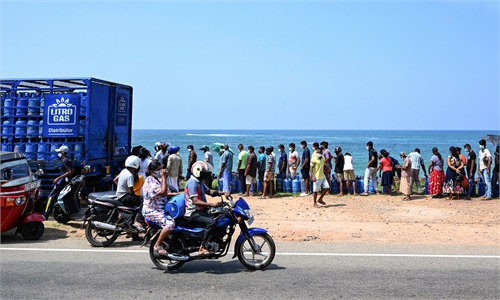
Illustration: Chen Xia/Global Times
Amid the fermenting economic crisis unfolding in Sri Lanka, certain Western media and other forces have been scouring topics that could be used to stir up regional instability, including an influence wrestling contest between China and India in the South Asian island country.
The latest example: A contract for building hybrid power plants on three Sri Lankan islands, which was initially won by a Chinese firm, has now been granted to India, the Wall Street Journal reported, claiming the move shows that the crisis "has opened the door for India to push back against China's growing influence in the Indian Ocean region."
Details of the contract has yet to be revealed, but hyping up the rivalry between China and India in the region may be the last thing Sri Lanka needs to ease its acute domestic crisis.
Sri Lanka's debt-to-GDP ratio soared from 85 percent in 2019 to 104 percent in 2021. Last September, Colombo officially declared an economic emergency trying to stem soaring inflation. The crisis has been fermenting and in mid-April, the country suspended external debt payment due to nearly dried up foreign reserves.
Both internal and external reasons are behind the crisis. The COVID-19 pandemic clearly has had a huge impact on the Sri Lankan economy given tourism is a one of its main economic pillars. Sri Lanka's tourism industry has lost more than $4 billion annually since 2020.
Meanwhile, the amount of remittances sent home by the South Asian country's overseas workers has also dropped significantly in recent years, which has led to a decline in the country's foreign exchange liquidity. Remittances from overseas workers have been one of the important sources of Sri Lanka's foreign exchange reserves, accounting for up to 26 percent of total inflow, according to some analysis.
Yet, the West has been fixating on Sri Lanka's debt to China, attempting to take the chance to play up the poorly made-up "debt trap" story, despite that Sri Lanka's outstanding external debt mainly comes from international capital markets, while only 10 percent comes from China, the same level as that from Japan.
Moreover, hyping up the so-called influence competition between China and India in the country could only cause more unnecessary burden to Sri Lanka's effort to revive its economy. There is no objection to India providing assistance to Sri Lanka as a neighbor, but it does not mean that Colombo must pick a side.
In fact, it is crucial for Sri Lanka to further strengthen cooperation with China. Years of cooperation between the two, especially since the implementation of the Belt and Road Initiative, has seen great progress in numerous aspects, including trade and investment.
China has become the largest buyer of Sri Lankan exports. The Hambantota International Port, which jointly managed by Chinese and Sri Lankan companies, has been key to the growth of the local economy. In the first half of 2021, cargo volume catered by the port increased by more than 180 percent year-on-year. That makes it plain for all to see the significance of an increasingly important international port for Sri Lanka's economy.
China has been helping Sri Lanka's economic and social development within its capacity and it is expected to continue to do so in the future. Despite the current economic crisis in Sri Lanka and the long recovery road ahead, China and Sri Lanka share bright prospects for cooperation. That will not be changed by Western media's ill-intend efforts to stir up regional instability.
The author is an editor with the Global Times. bizopinion@globlatimes.com.cn



